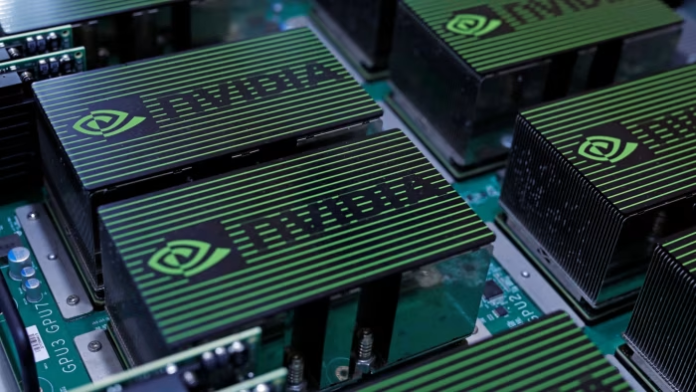Nvidia announced a $5.5 billion financial charge following new US restrictions on exports of its H20 artificial intelligence chips to China, according to Reuters.
The move underscores Washington’s intensified efforts to curb Beijing’s access to advanced semiconductor technology.
The US Commerce Department confirmed on Tuesday it had imposed fresh licensing requirements for Nvidia’s H20 and AMD’s MI308 chips, citing national security risks. Nvidia’s shares fell 6% in after-hours trading, whereas AMD dropped 7%.
The H20–Nvidia’s most powerful chip legally available in China–has been central to servicing demand from firms like Tencent, Alibaba, and ByteDance, which have ramped up orders for cost-effective AI model development.
While the H20 lags behind Nvidia’s global offerings in training AI systems, its competitive edge in inference (processing user queries) positions it as a key player in China’s booming AI sector. However, US officials now argue its high-speed connectivity features could enable supercomputing applications breaching existing 2022 export controls.
Nvidia disclosed the US government notified it on 9 April that indefinite licences would be required for H20 exports to China, though approval prospects remain unclear. The $5.5bn charge covers inventory write-downs, purchase commitments, and reserves linked to the restricted chips.
The setback comes days after Nvidia unveiled plans to invest up to $500bn in US-based AI server production with partners like TSMC, aligning with Trump-era pushes for domestic manufacturing. CEO Jensen Huang has previously emphasised Nvidia’s ambition to lead the AI inference market, now the sector’s fastest-growing segment.
